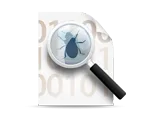Computer Security

Computer security is the responsibility of every computer user on campus. Whether it is keeping your computer's software up to date (computers and mobile devices) or not clicking on suspicious links in emails, our community benefits from the collective efforts of all users. As an example of how one individual can impact the entire College, clicking on a link in a phishing email and having login information stolen can result in massive amounts of spam being sent from your email account instantaneously. Before long, ISP's (e.g., Comcast, Verizon) and email providers (e.g., Gmail, AOL, Hotmail) begin rejecting any email they receive from Swarthmore.edu.
Like other Institutions of higher education, Swarthmore College is the target of many forms of cyber attack. These attacks occur around the clock, every day of the year and from all corners of the globe. Some are just nuisances but others are specifically targeted to steal personal and other useful institutional data. Cyber-crime is at an all time high and it is not expected to decline.
Awareness is an important step in protecting yourself online and in keeping the overall Swarthmore computing environment safe. There are several subsections under Computer Security to help secure your computing experience and to answer general security related questions. In addition, there is a portion of the ITS Blog devoted just to security topics.
As a reminder, ITS staff will NEVER ask you for your password, including by email! Please keep your passwords private to protect yourself and the security of our network. By the way, your bank, the government and other reputable organizations will never ask for your password by email either.
We will NEVER notify you by email that your account is about to be suspended (Please notify us without clicking on any of the links inside the email!).
You can always forward any Swarthmore-related phishing emails to phishing@swarthmore.edu.



